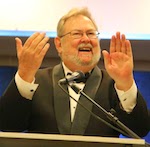Last week my newest book. 30 Events That Shaped the Church, hit the shelves (including
digital shelves). Another nonfiction. It surprises some of my readers and
fellow writers to learn that I write book-length nonfiction. After all, most of
my books are novels. My first published book was a novel and a bunch more
followed. So why write nonfiction? Why would a novelist wander the mean streets
of the nonfiction neighborhoods?
That’s a little difficult to answer. Writing is a series of
personal decisions. Those who have heard my “writing testimony” know that when
I set out to be a writer I first assumed that I would write articles and
nonfiction books. Novel writing appealed to me and I messed around with some
short stories (which went nowhere). I
had a few articles accepted but nothing of consequence. I was still splashing in
the shallow end of the writing pool.
Then, as a young pastor, I was called to Children’s Hospital
in San Diego where one of the children who attended my church was being
treated. The toddler had fallen from a moving car. Turns out, all was fine,
just a few bruises and scrapes. Still, I had to walk through Children’s
Hospital and that can be grueling. I glanced through a few open doors and saw
enough pain to make me shift my focus to the shiny floor. I wished for the gift
of healing and that got me to thinking about what might happen if a healer
strolled the halls of a major hospital—my first real storyline. That idea became
By My Hands (which I recently
re-released). From that came over 30 other novels.
Still, the old urge to pen a nonfiction book stayed with me.
Over my two decades of professional writing I’ve written 9 book-length
nonfiction books and co-wrote 2 others. I have plans to write more.
So I ask again: What’s a novelist doing in the nonfiction
neighborhood? Well, I’m fulfilling my mission of making my readers think. When
someone asks, “What do you do for a living?” my brain seizes. Writer. Editor.
Consultant. Novelist. Blogger. Podcaster. Teacher. Public speaker. How to
respond? I’m tempted to say, “I’m a communicator,” but that just causes
confusion.
Let’s face it: We writers have voices in our heads. The
ancient Greeks and Romans believed the arts and sciences were inspired by the
Muses. Some have more than one muse, that is, more than one field that
interests them. On a good day I feel my mind is a multifaceted diamond; other
days I’m pretty sure it’s just fragmented glass.
I view novels as exploration; nonfiction as explanation. I
want my ideas, my books, to communicate as well as entertain. I want readers to
think and learn and for some ideas I can only do that through nonfiction. 30 Events That Shaped the Church would
be difficult to do as a novel. Yet, the material is important, especially in a
world where much of church history is forgotten, overlooked, or undervalued.
Because of that, most Christians have no idea what the church endured to become
what it is today.
Nonfiction stretches me too. Writing nonfiction is very
different from writing fiction, but I don’t think I could do it without all that
I learned from writing novels.
I’ve always have been troubled by categories. I’ve also
admired those who can focus on one thing and make it a life’s work. For me,
however, writing is writing, and as long as it does something enduring, then it
has great value.
Turns out, I like both neighborhoods.
Alton Gansky writes novels and nonfiction. He is the host of Writer's Talk and the director of the Blue Ridge Mountains Christian Writers Conference. When not writing, editing, blogging, podcasting, and the such things he likes to eat and sleep. To get the real down-low on Al visit www.altongansky.com
















It's a great book, Al!
ReplyDeleteLooks like a good gift for my pastor husband.:)
ReplyDelete